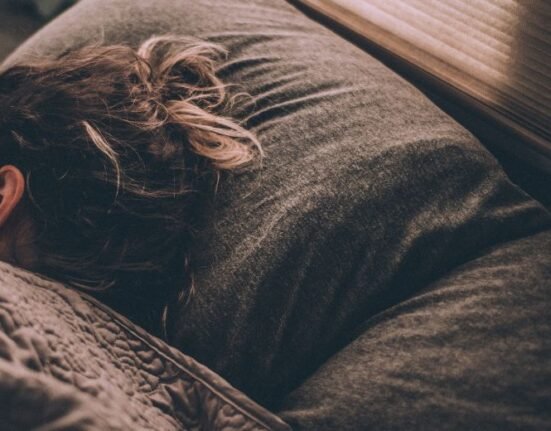HQ Team
27 September 2022: Good sleep is as essential as diet and exercise for good health. A good night’s rest improves brain performance and helps keep you in a good mood. The recommended sleep for adults is between 8 to 9 hours.
However, a new study co-authored by MIT economists presents a slightly divergent view about the correlation between sleep and good health. It says that more sleep, by itself, isn’t necessarily sufficient to improve health and increase energy levels. The study, titled “The Economic Consequences of Increasing Sleep Among the Urban Poor, was published in The Quarterly Journal of Economics. The study was carried out by MIT, Harvard University, Perelman School of Medicine, and Wharton School at the University of Pennsylvania.
The study observed the sleep patterns of 452 low-income workers in Chennai over a month. It was found that even increasing over half an hour of sleep among the participants did not improve their efficiency levels or quality of life. The only thing it did was lower the number of hours they worked.
“To our surprise, these night-sleep interventions had no positive effects whatsoever on any of the outcomes we measured,” says Frank Schilbach, an MIT economist and co-author of a new paper detailing the study’s findings.
Daytime Naps vs Long Night Sleep
The researchers also found that short daytime naps helped productivity and well-being. It was observed that the sleep quality was not good, with constant disturbances at night. There were mosquitoes, noise pollution and heat. Schilbach observed, “They have extremely few periods experiencing what’s thought to be the restorative benefits of deep sleep… People’s sleep quantity went up due to the interventions, because they spent more time in bed, but their sleep quality was unchanged.”
“In Chennai, you can see people sleeping on their rickshaws,” says Schilbach, who is also a faculty affiliate at MIT’s Abdul Latif Jameel Poverty Action Lab (J-PAL). “Often, there are four or five people sleeping in the same room where it’s loud and noisy, you see people sleep in between road segments next to a highway. It’s incredibly hot even at night, and there are lots of mosquitos. Essentially, in Chennai, you can find any potential irritant or adverse sleep factor.”
“In contrast to the night sleep intervention, we find clear evidence of naps improving a range of outcomes, including their productivity, their cognitive function, and their psychological well-being, as well as some evidence on savings,” observed Schilbach in the study.
For the study, the Chennai residents were given actigraphs and wristwatch-like devices that record sleep patterns. This made it possible to record participants’ sleep rhythms and duration in their home environment, unlike other studies that are mostly undertaken in lab environments.
The participants were encouraged and incentivised to take more nap breaks and rest at night.
The subjects in the study were also given data-entry jobs with flexible hours so that the researchers could monitor the effects of sleep on worker output and earnings in a granular way.
Fragmented and Disturbed Sleep
Before the study, the participants averaged about 5.5 hours of sleep per night. But during the research, they were able to add 27 minutes of sleep per night on average. However, to gain those 27 minutes, the participants were in bed an extra 38 minutes per night. That speaks of the challenging sleep environment of the participants, who, on average, woke up 31 times per night.
“A key thing that stands out is that people’s sleep efficiency is low, that is, their sleep is heavily fragmented,” Schilbach says. “They have extremely few periods experiencing what’s thought to be the restorative benefits of deep sleep. … People’s sleep quantity went up due to the interventions, because they spent more time in bed, but their sleep quality was unchanged.”
The study authors said that the people in the study experienced no benefits from the extra hours of sleep when measured across a wide range of metrics. Indeed, as Schilbach notes, “We find one negative effect, which is on hours worked. If you spend more time in bed, then you have less time for other things in your life.”
On the other hand, study participants who were allowed to nap while on the data-entry job did fare better in terms of productivity, cognitive function, and their psychological well-being.
That said, naps did not increase the total income of workers — nappers were more productive per minute worked but spent less time actually working.
“It’s not the case that naps just pay for themselves,” Schilbach says. “People don’t actually stay longer in the office when they nap, presumably because they have other things to do, such as taking care of their families. If people nap for about half an hour, their hours worked falls by almost half an hour, almost a one-to-one ratio, and as a result, people’s earnings in that group are lower.”
Schilbach is hopeful that further studies on sleep quality rather than sleep duration will help determine people’s quality of life and income. He also suggests it may be important to understand the psychological challenges the poor face regarding sleep.
“Being poor is very stressful, and that might interfere with people’s sleep,” he notes. “Addressing how environmental and psychological factors affect sleep quality is something worth examining.”
The study authors said that poverty indices should include a good night’s sleep, income, and material consumption for a more comprehensive measure of people’s well-being.




